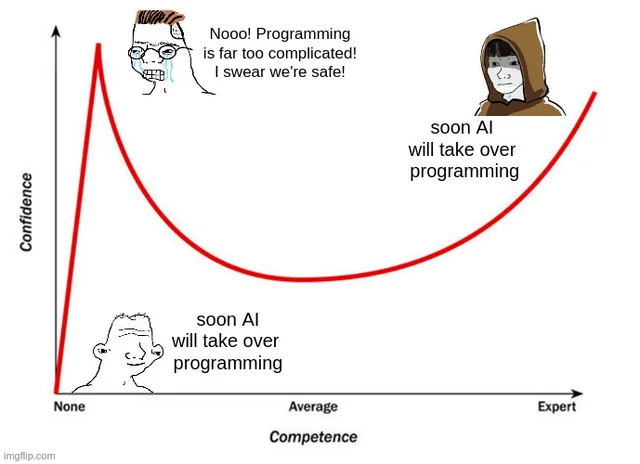How to Be a Good Developer in 2025: Part 1 — Soft Skills Sucks?

I am about to reach 7 years of dedicated programming experience. Along the way, I have learned and achieved things i never imagined possible. I’ve solved problems ranging from simple to complex for my clients, turning creative ideas into solutions that only seasoned designers might envision.
Soon, I’ll be visiting the university where i studied years ago, and lately, I’ve been asking myself: what would I say if a beginner programmer asked me for advice on becoming a good developer? My answers wouldn’t follow the obvious paths. In my opinion, the foundations start far from a computer screen.
We will divide the advice into two main phases: soft skills and technical practices. Each plays a crucial role in becoming a skilled programmer, so let’s get started!
- The first piece of advice I could give to become a good programmer isn’t about algorithms, code, design patterns, or similar topics. In fact, it starts with you. How can you be a good programmer if you’re neglecting the most important thing, and that should be yourself? Remember, you must dedicate time to yourself to stay well. Without that personal care, it’s likely you won’t be able to solve complex problems or spend long hours in front of a computer without being overwhelmed by anxiety and frustration.

2. Socialize, because remember that it’s in our nature to engage with other people. It’s part of our work as programmers to develop communication skills and learn how to express our ideas. Not everything is just a laptop. I recall reading the story of Pontormo, a painter who was assigned to paint a cathedral. However, his obsession with protecting his working process Xbecame so strong that he distanced himself from society. When he passed away, only his friend went to visit him. Upon seeing what he had painted, far from being a perfect piece, it became a distorted one. It’s important to remember that our life reflects in our work, as a direct result of our experiences.

3. Consider exercising as part of your work. It’s pointless to have great computer skills if you’re neglecting to condition your body, provide it with energy, strength, and nutrients to work in the most optimal way. I often fall into the trap of thinking that 1 or 2 hours of exercise would take so much time away from progress that I end up thinking i should skip it. However, honestly speaking, 2 hours doesn’t take up much of the day compared to the hours we spend in front of a computer.
4. Sleep, you need it. You won’t be as efficient; in fact, studies suggest you would have the same efficiency as a drunk person if you don’t sleep enough. It’s recommended to sleep early so you can wake up early. Yes, i imagine you think you work better at night, i feel the same, but we can’t ignore the fact that we sleep more efficiently at night than during the day.

5. Humility opens doors of opportunity. Being a pleasant person motivates others to work with you. Recognize the work and effort of others; if you’re with the right people, they will also acknowledge your merit.

6. In this era, hobbies serve as an escape from complex situations. Your mind continues working to solve problems even after you turn off the computer. Thank your brain and give it a break by focusing on something more enjoyable. It’s more likely that practicing new hobbies like drawing, music, etc., will boost your creativity, and you’ll return with fresh ideas to solve problems.
If you liked the basic and humanly essential tips i shared earlier, i will now move on to the technical tips.
The topics i suggest addressing in the rest of the article may be familiar or new to you, depending on your level. I will cover topics like refactoring, data structures, development patterns, environment variables, CI/CD, deployment, and more, highlighting the importance of each one.
You can visit my pages to read the technical advices…
- Part 2 on Ko-fi
- Part 2 on Patreon
- Part 2 on Buy Me A Coffee
🪙 You can buy my projects and support me on:













